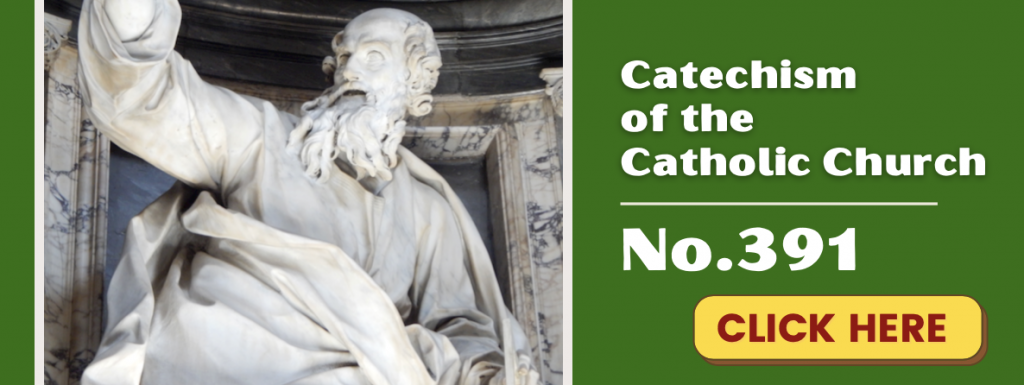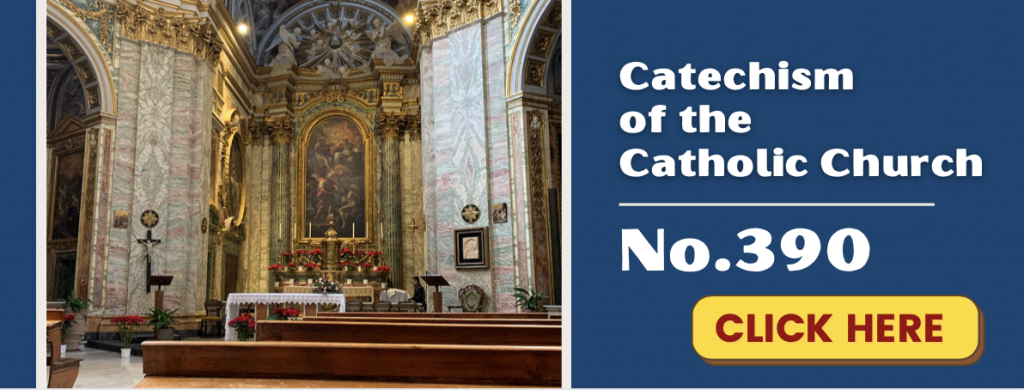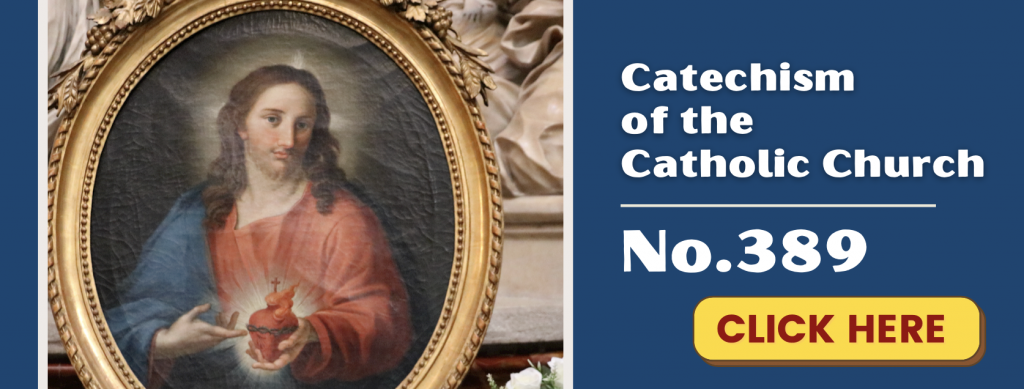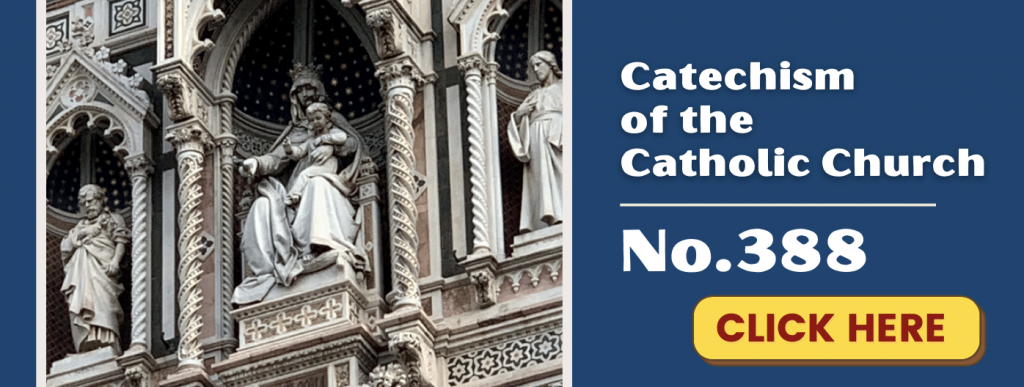Memorial of the First Holy Martyrs of the Holy Roman Church

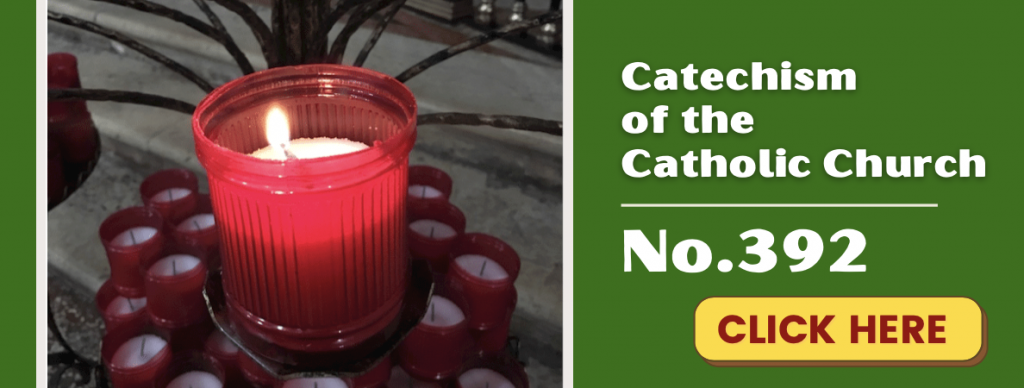

“For greater things you were born.” (Ven. Mother Luisita)
WEDNESDAY, June 30th Mt. 8: 28-34 “The demons pleaded with him, ‘If you drive us out, send us into the herd of swine.’ And he said to them, ‘Go then!’ They came out and entered the swine, and the whole herd rushed down the steep bank into the sea where they drowned.”
- Jesus wants to drive the demons out of us today! The demons we are born with: pride, anger, envy, gluttony, lust, avarice (greed), sloth (laziness). They are always tugging at us, but they don’t become sins until we act on them.
- In truth, we do act on them! Worse, we become accustomed to our sins, until we don’t see them anymore. The only way to remove the blinders from our eyes is a periodic, rigorous and thorough examination of these tendencies and the opposing virtues.
CONQUERING THE 7–HEADED ENEMY WITHIN by Fr. Ed Broom, OMV
A father and his young son are taking a leisurely walk through a wooded park in the early evening. Suddenly the father stops, looks into the eyes of his son and says: “Son, I must tell you that I have a wolf within me—a ravenous, angry, vicious wolf.” As they continue walking, the boy tries to make sense of his father having a wolf within him.
They walk on, again the father stops. Looking intently into the eyes of his son, the father says: “Son, I must tell you that I also have a lamb within me—a gentle, kind, loving lamb.
As they continue walking the son is trying to understand what this means, my father has both a wolf and a lamb within him. Unable to bear the suspense any longer, the son grabs his father’s sleeve and says: “Dad, Dad, which one is going to win, the wolf or the lamb? The father answers, “Whichever one I feed the most.”
By means of this story let us delve into the depths of our own interior lives where we must encounter both the wolf and the lamb, the flesh in battle against the spirit, darkness striving to extinguish light, nobility and courage in contrast to fear and cowardice. This story is not simply a pious, mythical fairy-tale; rather, this is our story. All of us are this father with both a wolf and a lamb within, each one vying to surface so as to prove victorious. Which of the two will win in us: the wolf or the lamb? The response is as clear as the sun at midday: whichever one we feed the most!
THE SEVEN WOLVES AND LAMBS WITHIN—THE SEVEN CAPITAL SINS AND OPPOSING VIRTUES.
As a result of the Original Sin of our first parents, Adam and Eve, a moral tsunami was set in motion, like a huge stone pushed in motion from the top of a mountain. In the human person, created in the image and likeness of God and essentially good by nature, there is constant tension within. Even after the reception of the Sacrament of Baptism which washes away the stain of Original Sin, the effects of original sin remain such that our human nature is impaired, damaged, and inclined toward evil. Indeed, if that evil tendency or proclivity is not checked, but given free reign, the wolf will conquer the lamb, slavery will reign over liberty, and addictions become commonplace in such a person.
This being the present state of affairs, let us point out the seven wolves that are lurking within and the lambs that must be fed, cultivated, and bred to reign as the ultimate victors in the battle. These are the SEVEN CAPITAL SINS and the SEVEN OPPOSING VIRTUES.
For clarity, simplicity and ease in explaining, we will present the seven capital sins and the opposing virtues. Following will be a brief explanation on how the capital sins can be conquered in your soul; and this means the lamb will conquer the pernicious and vicious wolf always ready and on the prowl to attack!
1. GLUTTONY VS. TEMPERANCE.
2. LUST VS. CHASTITY.
3. AVARICE (GREED) VS. GENEROSITY.
4. SLOTH (LAZINESS) VS. DILIGENCE.
5. ENVY (JEALOUSY) VS ADMIRATION/GRATITUDE.
6. ANGER VS. MEEKNESS.
7. PRIDE VS. HUMILITY.
Now categorically and in an orderly fashion we will give a brief explanation of each of the Capital Sins—the wolf lurking within and the opposing virtue to be practiced. The whole purpose or thrust of this essay is to enhance our self-knowledge so that in all honestly we come to know and then come to terms with our primary weaknesses—so we can conquer the wolf and allow the lamb to dominate. This heightened self-knowledge or self-awareness will prove a huge advantage in our battle for purity and liberty, and the salvation of our immortal soul in the long run!
Many of the classical writers in ascetical and mystical theology insist upon the indispensable need for self-knowledge. The historian asserts: “He who does not know history is condemned to repeat the same errors.” Socrates stated: “A life not examined is a life not worthy living.” The Desert Fathers have a famous two-word axiom: KNOW THYSELF! Even athletes, baseball-players, boxers, etc., will study their opponents so as not to make the same mistakes that cost them the prior game.
If you like, this simple analogy can prove quite useful. Superman had incredible strength. However, he had one potential weakness: KRYPTONITE. If exposed to this element, his energy and strength were drained and sapped from his body, and he became as weak as anybody else. Likewise, Samson’s strength was in his long locks of hair, and Achilles in his heel. This essay can help you to name it, claim it, and tame it! We must name our weakness, claim this self-knowledge as indispensable, and then tame the wolf by inviting the lamb to live within!
I. CAPITAL SIN: GLUTTONY.
The Capital Sin of Gluttony can be defined as such: “Gluttony is a disordered desire to eat and drink.” The key word is disordered. The Catechism of the Catholic Church, relying on the wisdom of Saint Thomas Aquinas, asserts that sin is against reason and is a disorder. Saint Ignatius states that we are called to order the disorder in our lives so that we can discern the will of God.
Ask yourselves this question: “Do you live to eat or do you eat to live?” If you live only to eat, then Saint Paul calls this “The god of the belly.” We call this the Capital Sin of Gluttony—the wolf from within.
OPPOSING VIRTUE—TEMPERANCE.
The opposing virtue to the Capital Sin of Gluttony is that of Temperance. This virtue can be defined as: “The proper and ordered use of created goods.” Saint Ignatius in Principle and Foundation reminds us that we are called to use created goods and not to abuse them. The virtue of temperance is using food as a means to have energy, strength, and stamina in order to faithfully carry out the obligations of our state of life. We must strive to conquer the wolf within—eat to live healthily, not live to eat only to satisfy our carnal pleasure!
A PRACTICE TO ATTAIN TEMPERANCE: Leave the table a little hungry. In other words, stop eating before you feel full.
2. CAPITAL SIN: LUST.
A concise definition of the Capital Sin of Lust is the following: “Lust is a disordered desire for sexual pleasure.” As a result of Original Sin, one of the strong disordered tendencies is viewing a person as an object to be used, rather than as someone to be valued for their innate dignity that comes from the Creator, and even more from the Sacrament of Baptism. Jesus warns us to look beyond the mere act of Fornication or Adultery. He warns us to avoid even lusting after a woman in our heart. The standard is high, but the grace of God is more than sufficient if we correspond to it.
OPPOSING VIRTUE—CHASTITY/PURITY.
The opposing virtue to the Capital Sin of Lust is that of chastity or purity. So as to contemplate God in this life, as well as in the Kingdom of Heaven, one of the key requirements or conditions is that of purity. The words of Jesus exemplify this truth in one of the eight Beatitudes: “Blessed are the pure of heart, for they will see God.” (Mt. 5:8)
A PRACTICE TO ATTAIN PURITY: Contemplate daily a beautiful painting, icon or picture of the Blessed Virgin Mary with your physical eyes and the eyes of your soul.
3. CAPITAL SIN: AVARICE/GREED.
A short and to the point definition of Avarice, also defined as Greed, is the following: “Avarice is a disordered desire for material things or possessions.” The philosophical system or terminology would be that of Materialism and Consumerism. Our life is focused more on what we have than who we are. In other words, our possessions can end up possessing us.
OPPOSING VIRTUE—GENEROSITY.
The opposing virtue to the Capital Sin of Avarice is that of Generosity. Generosity is mastered by the art of giving. The proverb of Saint Paul characterizes the thrust of his life: “There is more joy in giving than in receiving.” The saints lived the Gospel of generosity to a point that would shock a person dominated by materialism, as in the case of Saint Mother Teresa of Calcutta who coined this pithy maxim: “We must learn to give until it hurts.”
A PRACTICE TO ATTAIN GENEROSITY: Every month check your closets, wardrobe, or garage and give to the poor something that you really do not need.
4. CAPITAL SIN: SLOTH/LAZINESS
What is sloth? It is nothing more than laziness, indolence, lack of effort needed to carry out our daily obligations. You might even call it spiritual, mental, and physical inertia in our person, once again, as a result of Original Sin. This sloth can manifest itself in resistance to physical work, mental efforts, and spiritual activity—putting off or neglecting prayer.
OPPOSING VIRTUE—DILIGENCE.
A diligent person manifests readiness and willingness to work hard with their body, their mind, and their soul. Not daunted or overcome by difficulties, they work through the difficulties. One of the best examples is Saint Joseph the Worker.
A PRACTICE: Imagine a typical day in the Carpenter-shop with Jesus and Saint Joseph and you working side by side with them the whole day! No time for laziness; rather hard, methodical, systematic work done and all for the honor and glory of God!
5. CAPITAL SIN: ENVY (JEALOUSY)
A very dangerous and pernicious Capital Sin that if not overcome through grace, can bring with it many very serious, noxious consequences. This we see most clearly in the murder of Abel at the hands of his brother Cain, a result of unbridled anger fed and nourished by envy.
Envy is a step worse than jealousy. Jealousy is sadness in our heart because we recognize that somebody has something we do not have. Envy descends deeper into the pit of evil because we rejoice when something bad happens to that person. Truly ugly!
OPPOSING VIRTUE—ADMIRATION AND FRATERNAL CHARITY.
Instead of putting down the person you envy, admire and compliment that person on their talents, successes, and triumphs. Moved by the good spirit, you will come to a keen awareness that whatever gifts they have come from the Author of all good—God Himself. A key Biblical passage to conquer envy in all shapes and forms is from Saint Paul: “Rejoice with those who rejoice and weep with those who weep.”
A PRACTICE: Every night, look back at your day and find something to thank God for and remember how blessed you are!
6. ANGER.
This Capital Sin is a transient impulse of passion that can be brought on by multiple factors. All too often, our anger is manifested by an attitude of impatience, and this impatience can be played out against others, ourselves, and even at times against God. Anger often has as its root cause, pride. We’re angry because we want things done our way, in our time, and according to our concept of perfection. If not held back or checked, anger can wreak havoc in our life, the lives of those around us, and the lives of a host of others.
OPPOSING VIRTUE—MEEKNESS.
In Sacred Scripture, Jesus describes two characteristics of His Sacred Heart—meek and humble. (Mt. 11:29) Contrary to common opinion, meekness is not weakness; quite the contrary, meekness is powerful emotion under the control of faith and reason. One of the most famous saints known far and wide for his meekness is Saint Frances de Sales; he fought hard to acquire that virtue, and so can we!
A PRACTICE: A daily prayer to help us acquire meekness is the following: “Jesus meek and humble of Heart, make my heart like unto thine.”
7. PRIDE.
At the root of all sin is that of pride. Pride can be defined in many ways. However, a concise and clear definition of pride might be the following: “Pride is a disordered love for self.” In other words, the proud person places himself at the center of attention. He is number one! He wants to be recognized and applauded in what he considers his excellence and greatness! The saying rings so true: Pride comes before a fall! In every one of our sinful actions, pride is behind that action in one form or another.
THE OPPOSING VIRTUE— HUMILITY.
A person imbued with the virtue of humility recognizes the following: All the good that I can do physically, intellectually, morally, spiritually, and totally is due to God’s grace and God’s work in my life. In the words of the Psalmist: “Not to us, not to us, but to Thee, O Lord, the honor, glory and praise.” (Ps. 115:1)
A PRACTICE: Every single day go out of your way to do something kind for someone or say something kind to someone, without expecting anything in return.
So, my friends in the Lord and His Mother Mary, we have come to the conclusion of our essay on the Capital Sins that we all have rooted within our fallen nature. It is incumbent upon us, through serious prayer, examination of conscience, as well as adequate spiritual direction to discern which of the Capital Sins is our predominant one, and what might be our second most dominant. Then, with the help of God’s grace and our good will and effort, work to conquer those Capital Sins by practicing the opposite virtues so your soul will shine like the stars in firmament at night!
THE WOLF AND THE LAMB. As in the opening story, we all have the wolf and the lamb hidden in the inner recesses of our heart, our mind, and our soul. We must have a humble and clear perception of this dual reality. With God’s grace and our generous effort, we can conquer the wolf within us, so that the lamb, who is a symbol of Jesus Himself, “The Lamb of God who takes away the sins of the world”, might shine forth brilliantly in our lives. May Mary, the Mother of the Lamb, help us to overcome evil and allow holiness to conquer and reign in our lives!

